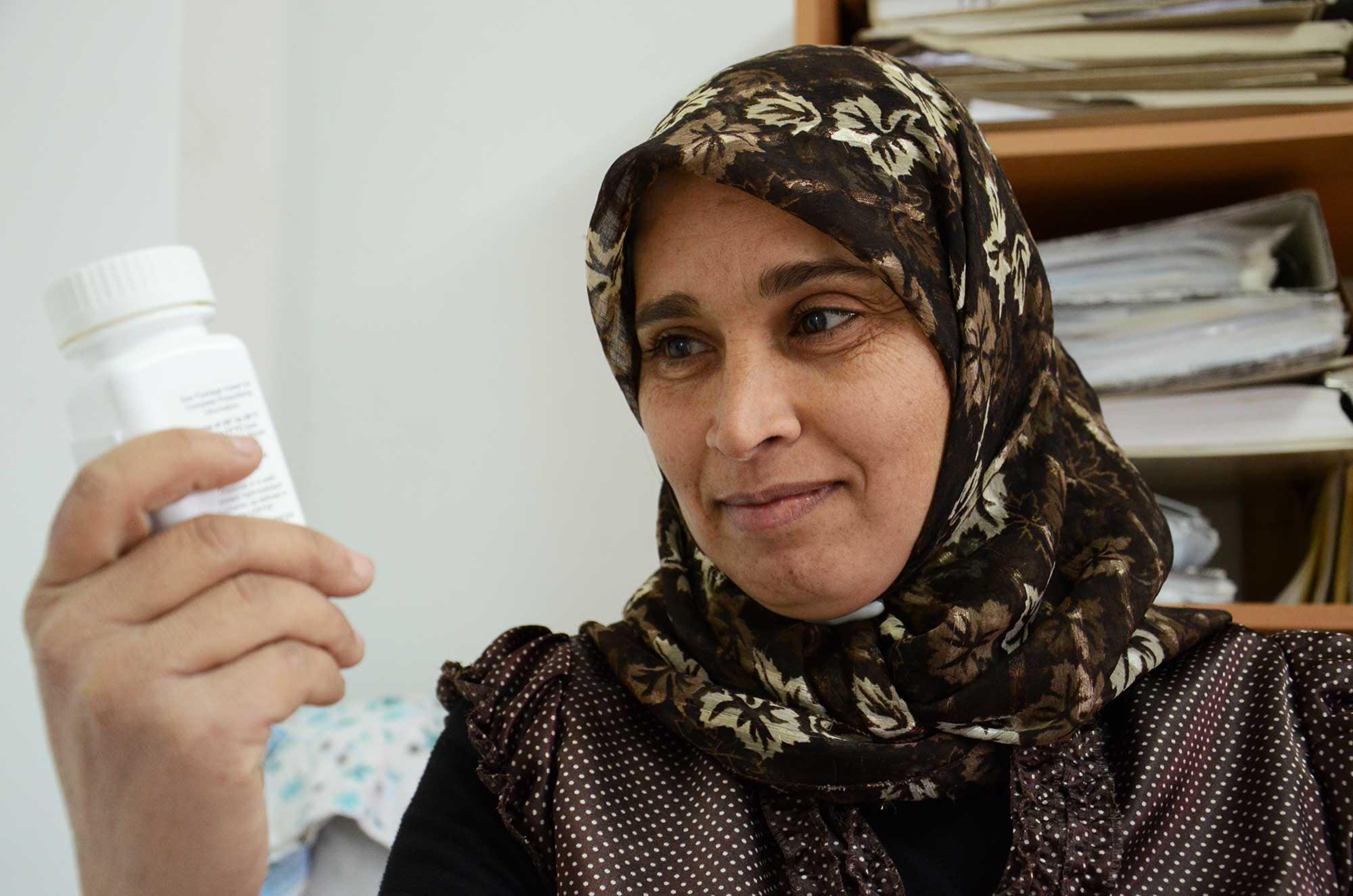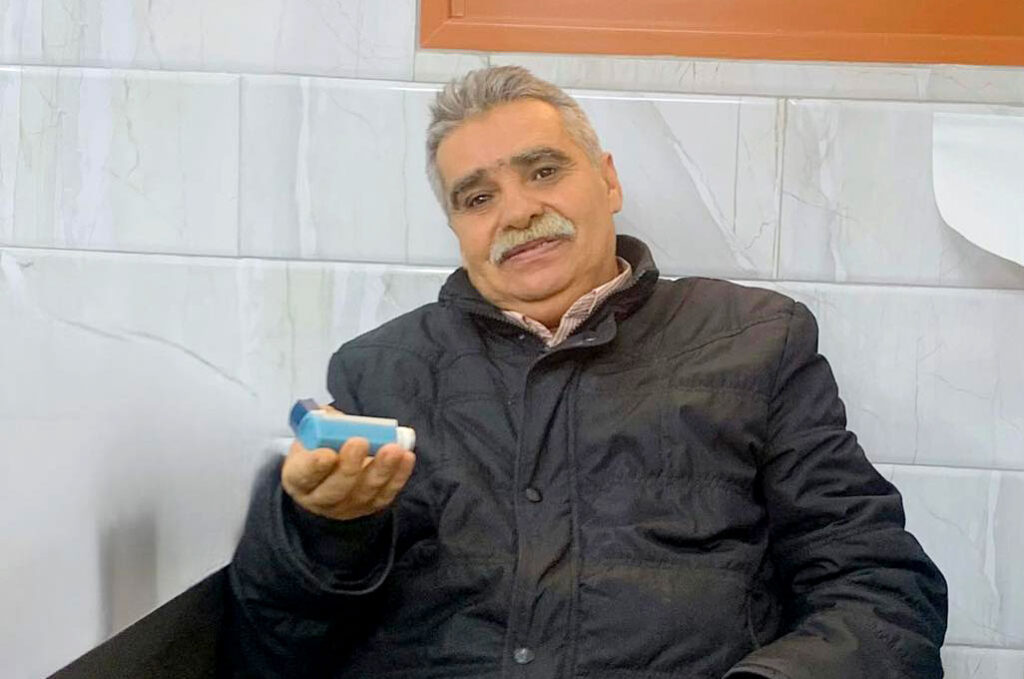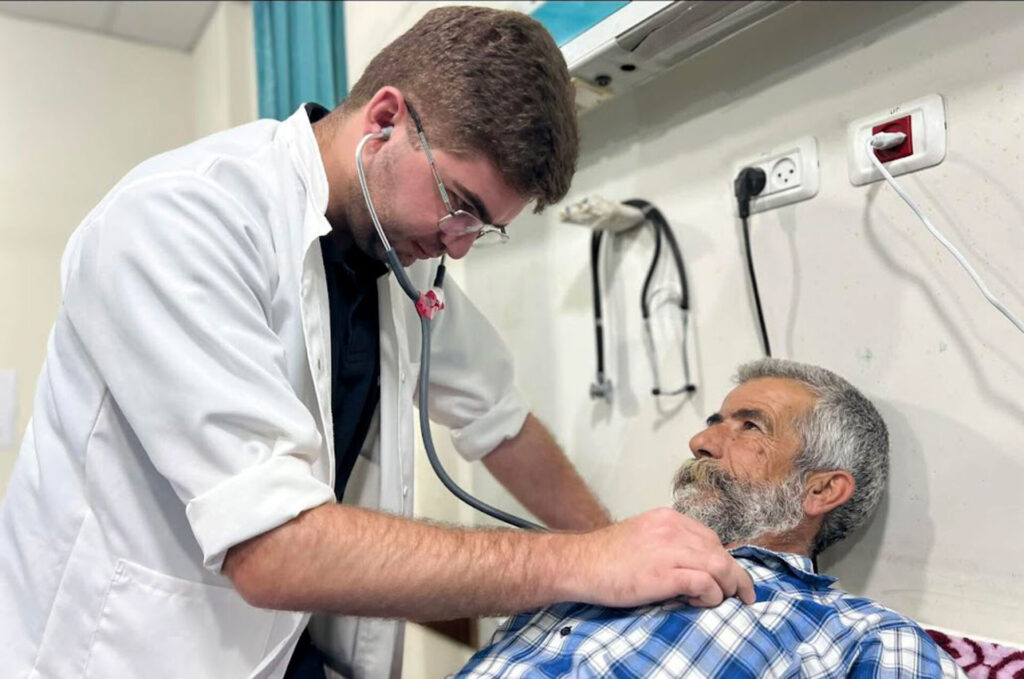Apr, 2015
Forty-five-year-old Amna Odeh hesitantly steps into Dar Salah’s medical center hoping to get immediate care.
Fatigued, skeletal and barely able to walk, she informs the doctor on duty she has Addison’s disease, a rare chronic disorder. The doctor knows exactly what to give her.
Fortunately for Amna, Anera has recently delivered a significant donation of medical supplies, including a steroid medication called Dexamethasone, from long-time donor AmeriCares. One tablet a day of the potent medicine can replace the usual three injections for an Addison’s patient, making treatment more convenient and tolerable. The medication has been delivered to several health clinics, centers and hospitals around the West Bank, including the medical center in the village of Dar Salah.
Dr. Rani Abu-Qaddoum, the center’s director, explains that Addison’s disease is caused by a dysfunction in the adrenal glands that stops the production of essential steroid hormones. He says the hormones’ importance to the body is like gasoline to a car. Without it, you cannot function at all. Acute joint pain, fatigue, stomach aches, low blood pressure, dark pigmented skin and dizziness are common signs.
“Amna may be the only patient in Dar Salah diagnosed with Addison,” adds Dr. Abu Qaddoum.” There are only eight diagnosed cases in the entire district of Bethlehem.”
Amna had been suffering in silence for five years. She had to quit her job at a clothing factory because of the effects of her illness. Amna is illiterate and has no alternate source of income. “My health was deteriorating and that forced me to quit my job. I could no longer commute to work or operate a sewing machine. It was too exhausting,” she explains.
She sought medical attention elsewhere but could not afford the medication because of her difficult financial situation, so she tried to treat herself with painkillers. She did not realize she was harming her health. Amna also was not aware that she could get the medicine at her local clinic now free of charge.


My health was deteriorating and that forced me to quit my job. I could no longer commute to work or operate a sewing machine. It was too exhausting.


Donated Medicines Ease Suffering Across Palestine
Amna beams with delight and relief when she hears that the donated medication is free. One course (seven tablets) of this medicine would have cost her $15. The doctor tells Amna he expects to see her once a month for a routine checkup. But he reminds her that she can call the center whenever she feels unusually tired, dizzy or nauseous.
“Without medication, Amna wouldn’t be able to perform the simplest of tasks,” he says. “For patients like her, this medication being donated means the world.”
The medicine is also used to treat some 30 cases of inflammatory and upper respiratory tract infections and acute diseases. The center, like many others in the West Bank, depends on donated medical supplies to survive and continue serving its patients. “With fluctuating weather conditions, germs are spreading and more people are prone to more common diseases,” Dr. Abu Qaddoun says. And then he smiles with relief, “This medicine came just in the nick of time.”
AmeriCares has been providing medical supplies and medicines, from vitamins and antibiotics to medication for chronic diseases like hypertension and diabetes, since the start of Anera’s In-Kind program in 1993. Among its most significant donations are chronic disease medications that treat hypertension and diabetes.




